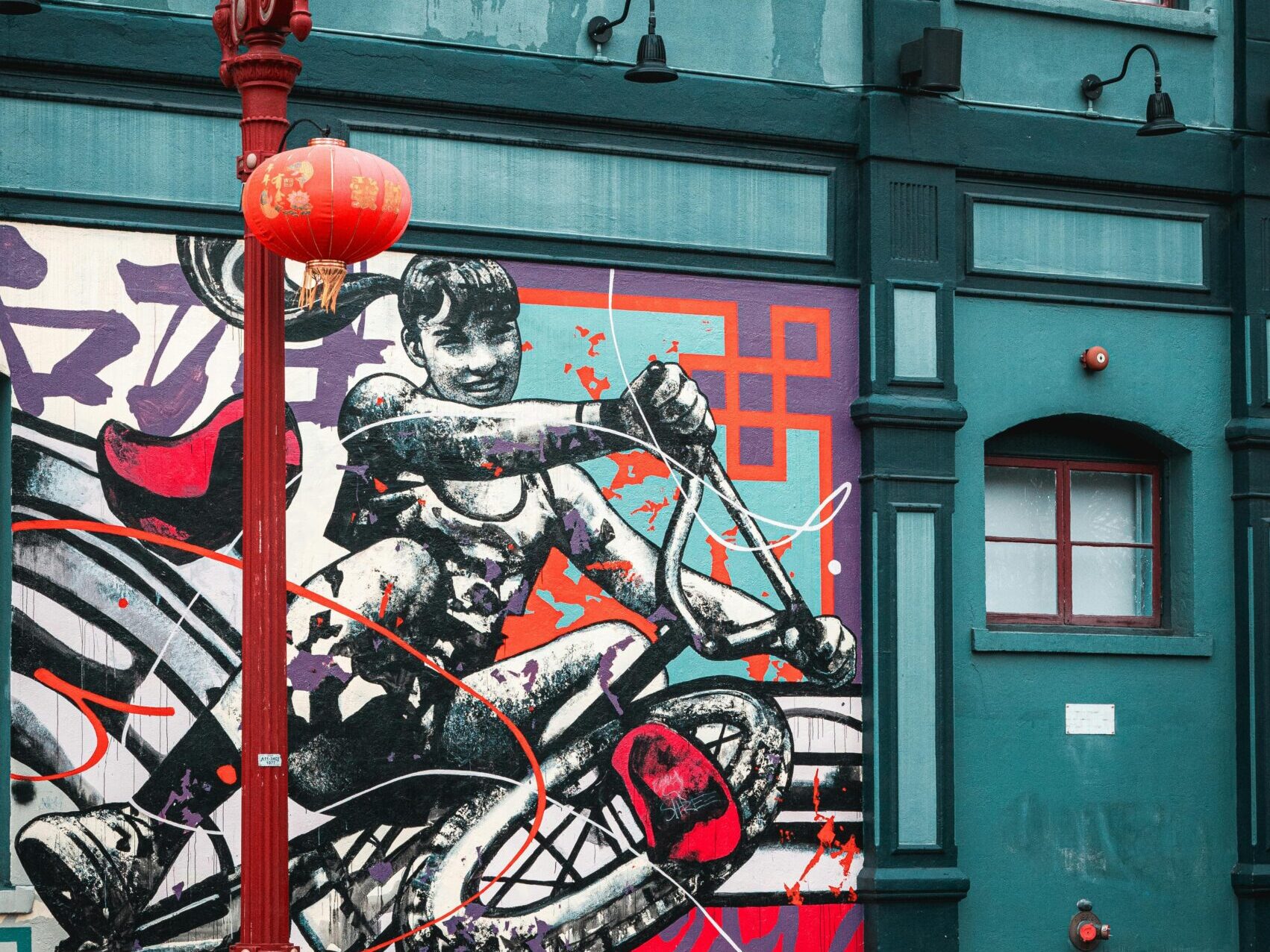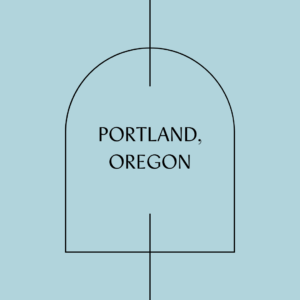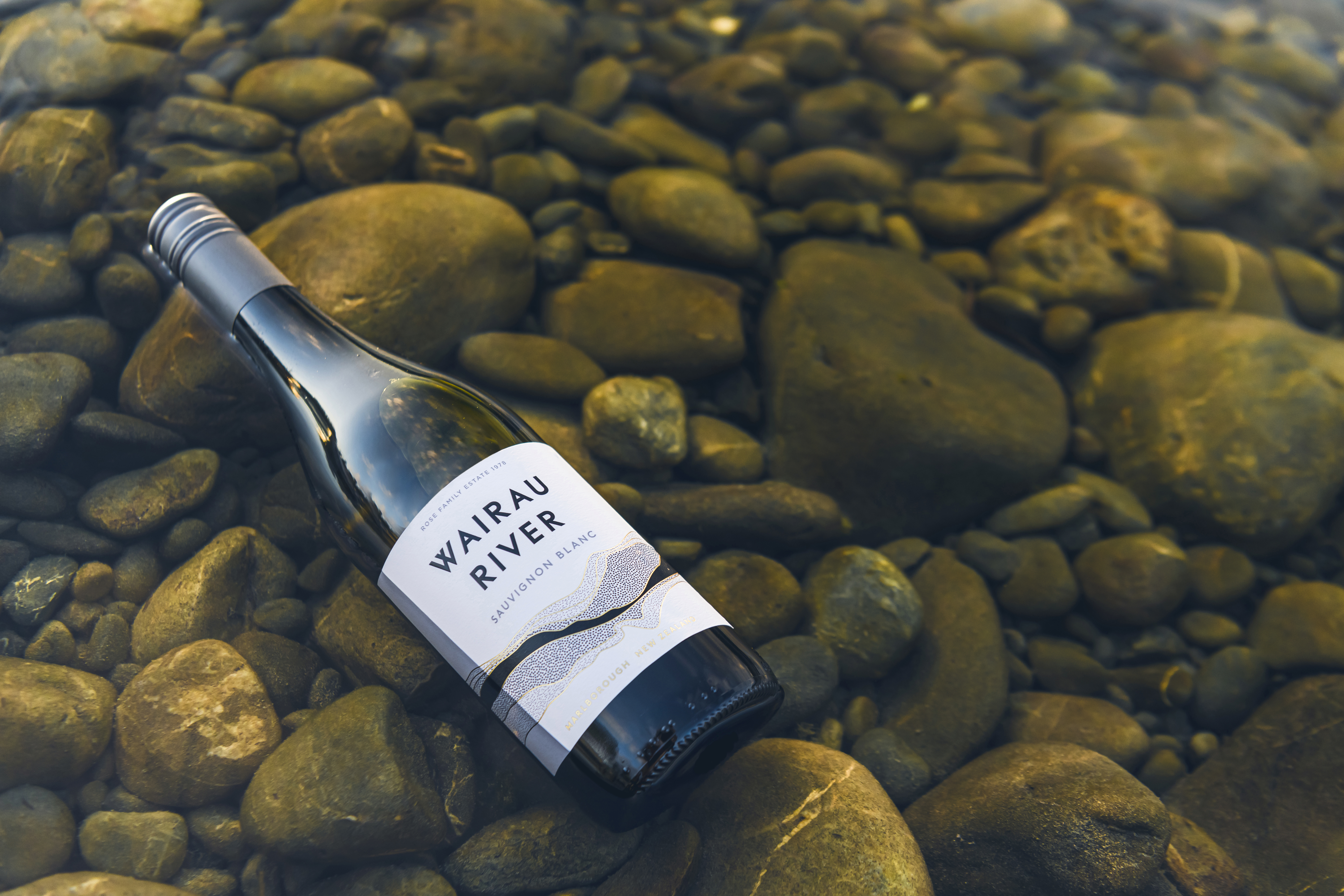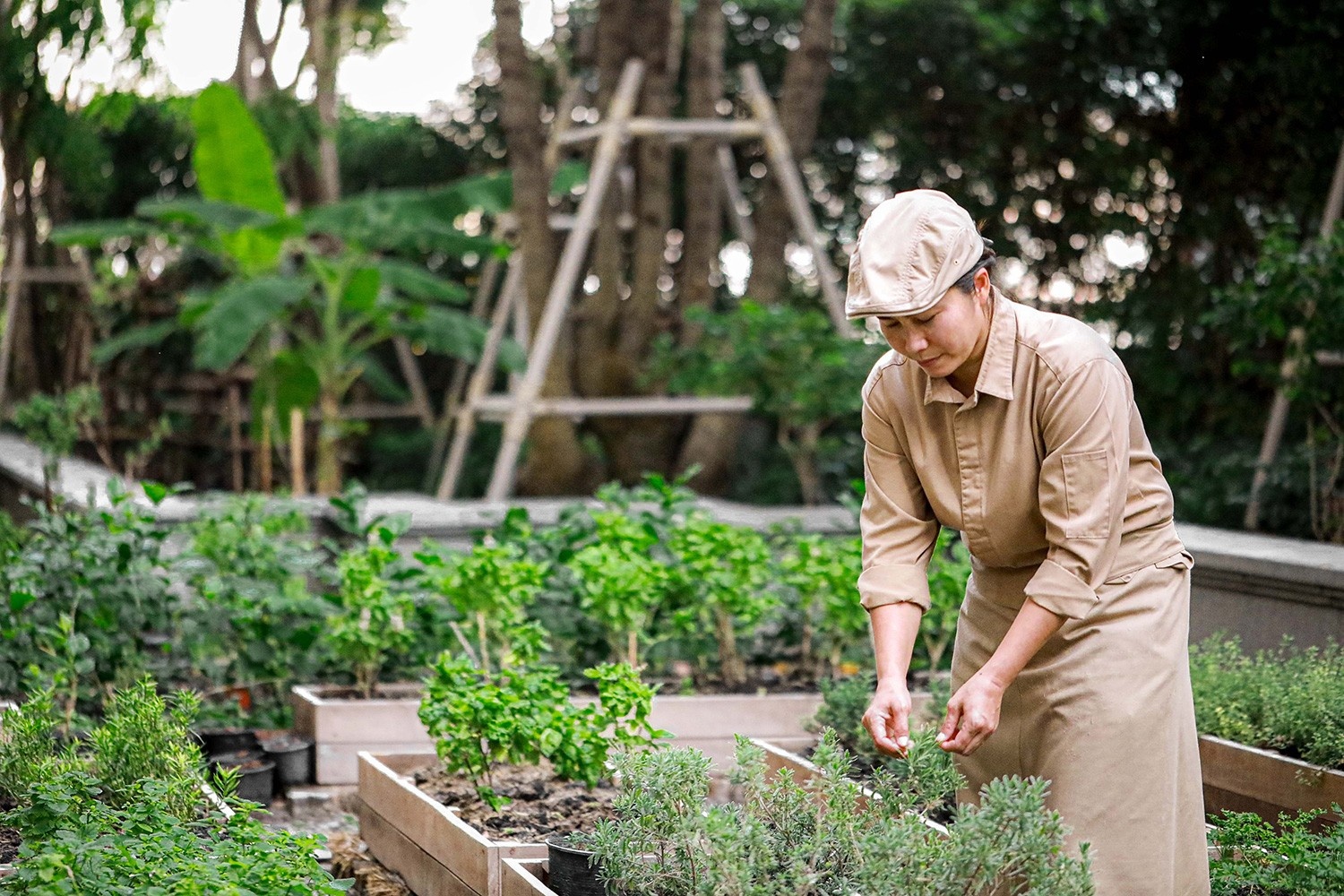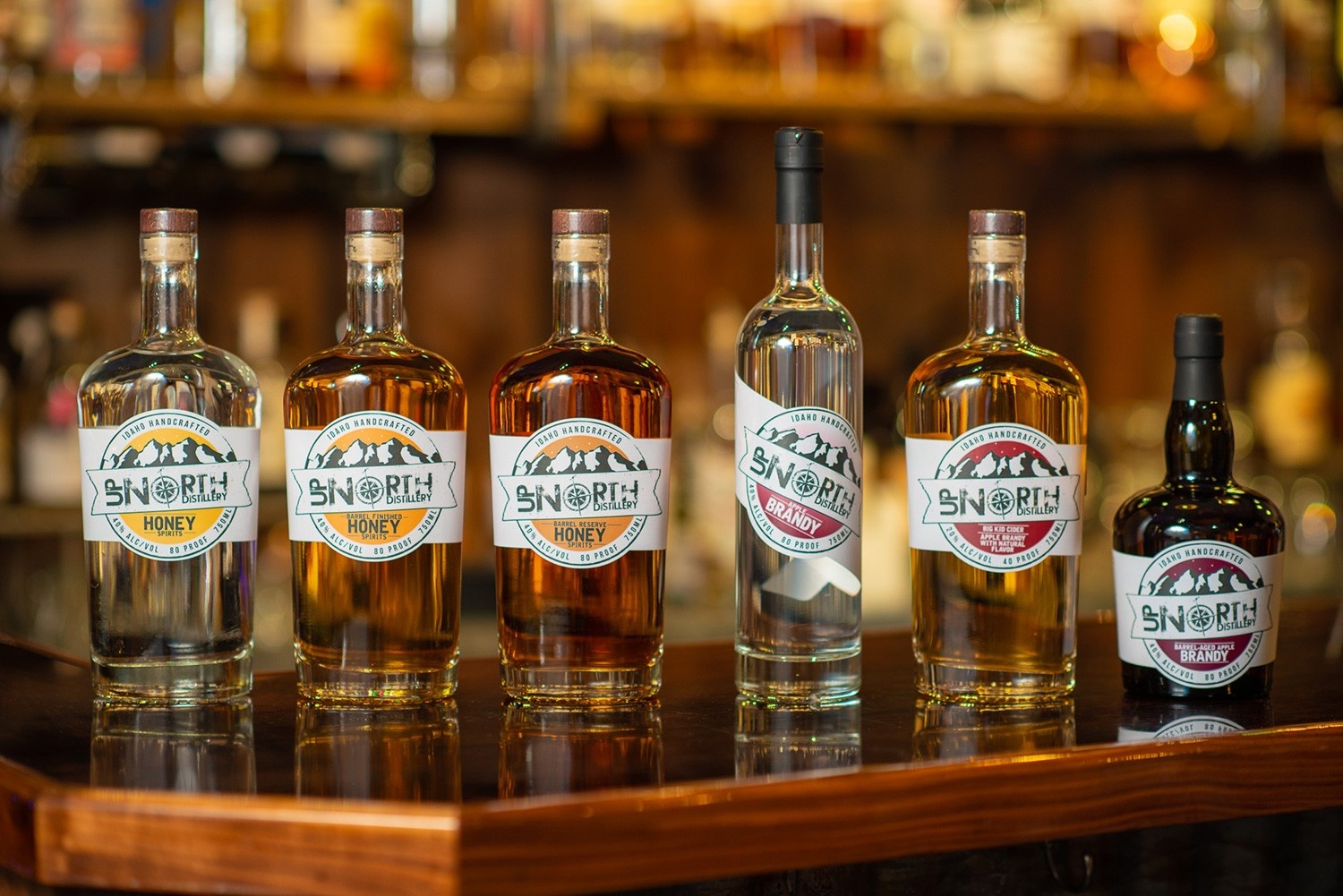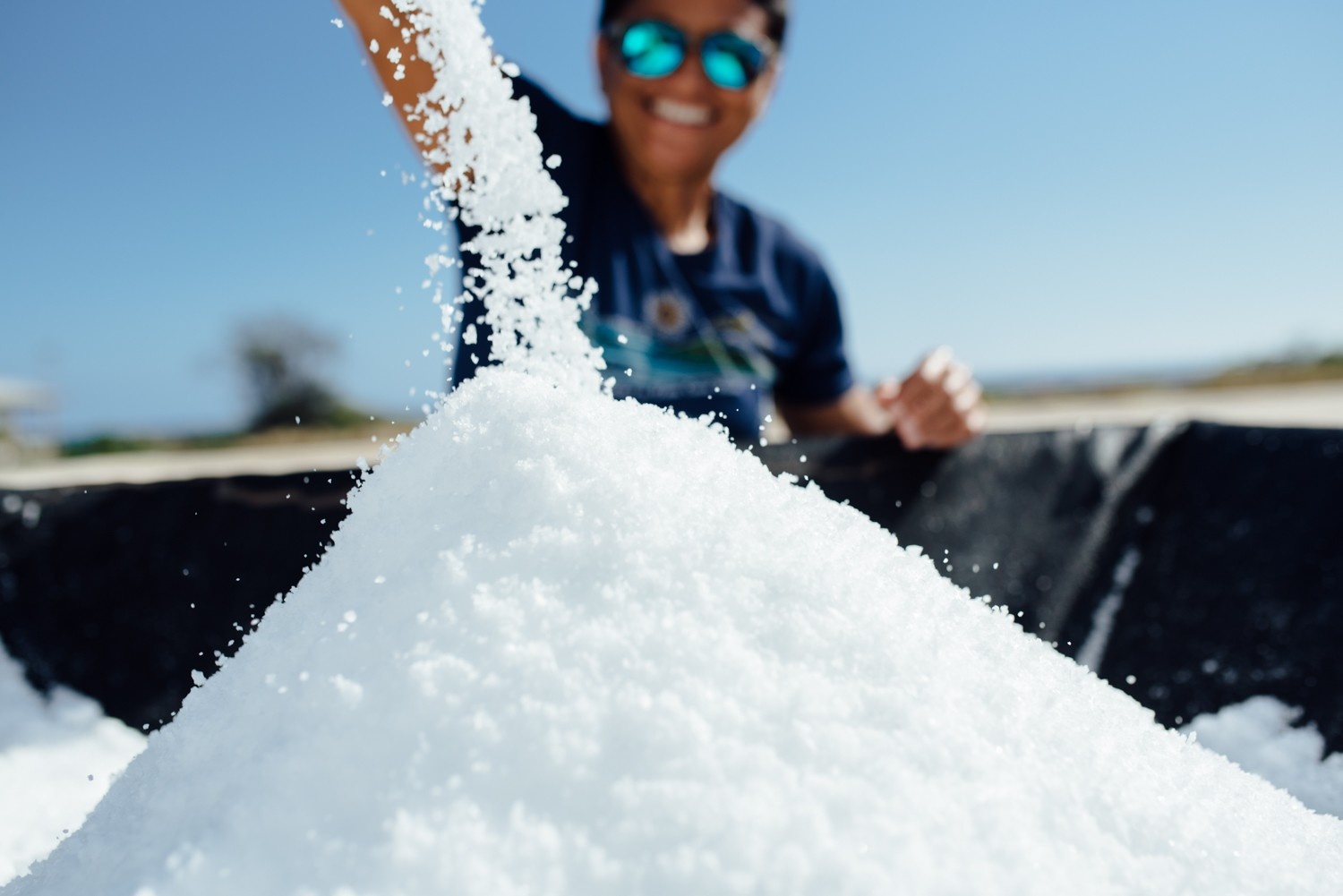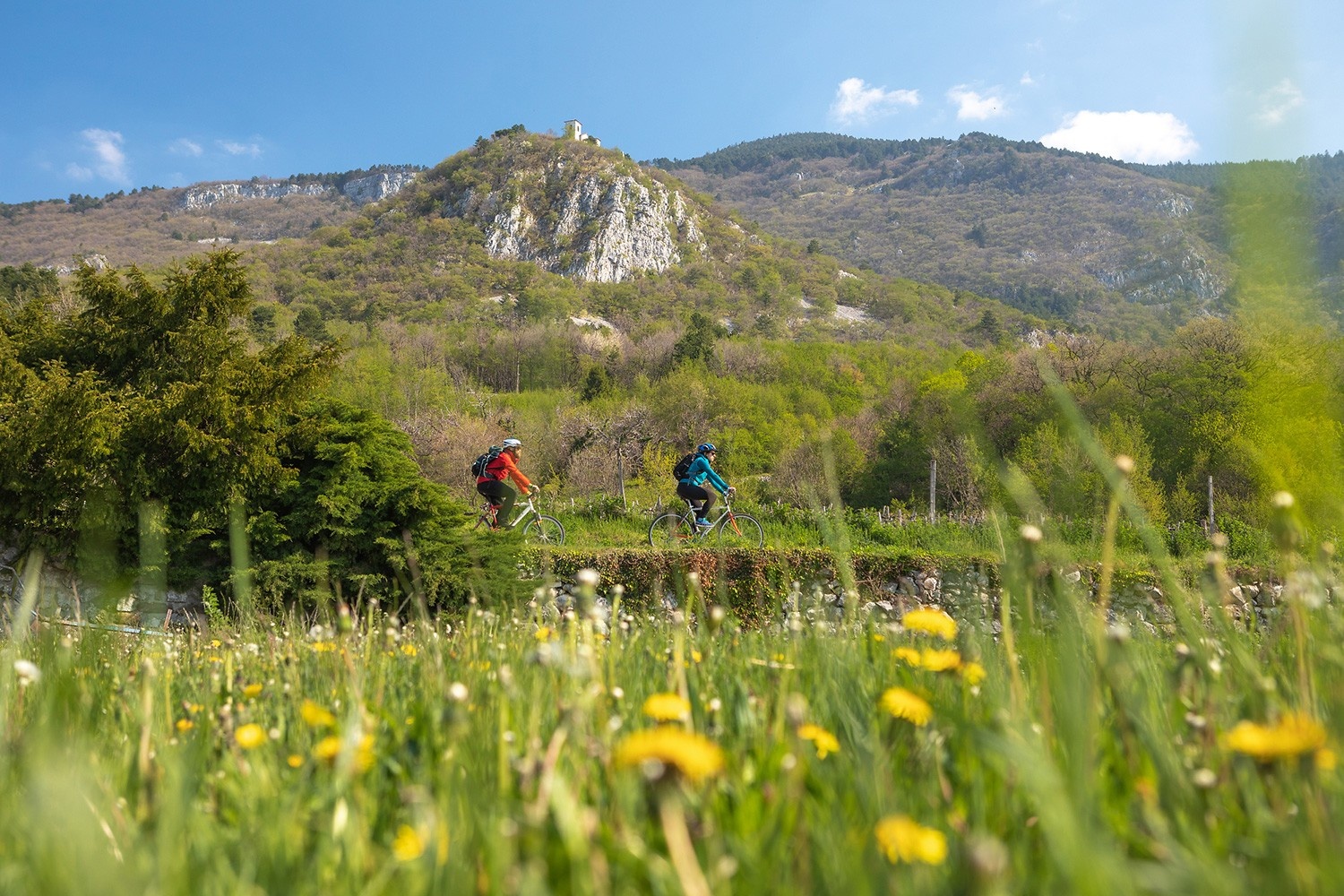“We believe that cities — messy, creative, imperfect cities — are one of our best chances to build something better.”
What’s a Sustainable City Guide?
Every day, we’re bombarded with evidence that our systems are failing. Rising temperatures. Overflowing landfills. Food waste on one end of town, food insecurity on the other. Plastic on beaches, floods in historic neighborhoods, endless concrete sprawl, and disappearing trees and native plants.
The climate crisis is no longer abstract. It’s visible, it’s daily, and its damage is uneven. The people least responsible are the ones most at risk. And too often, the conversation around solutions is reduced to reusable straws or glossy green branding.
That’s not enough.
At Azure Road, we believe that cities — messy, creative, imperfect cities — are one of our best chances to build something better. When done right, cities can reduce emissions, support local food systems, mitigate inequality, and help people lead more connected lives.
That’s why we’re launching a new editorial series: Azure Road Sustainable City Guides. These guides explore how cities function and how travelers can navigate them more thoughtfully.
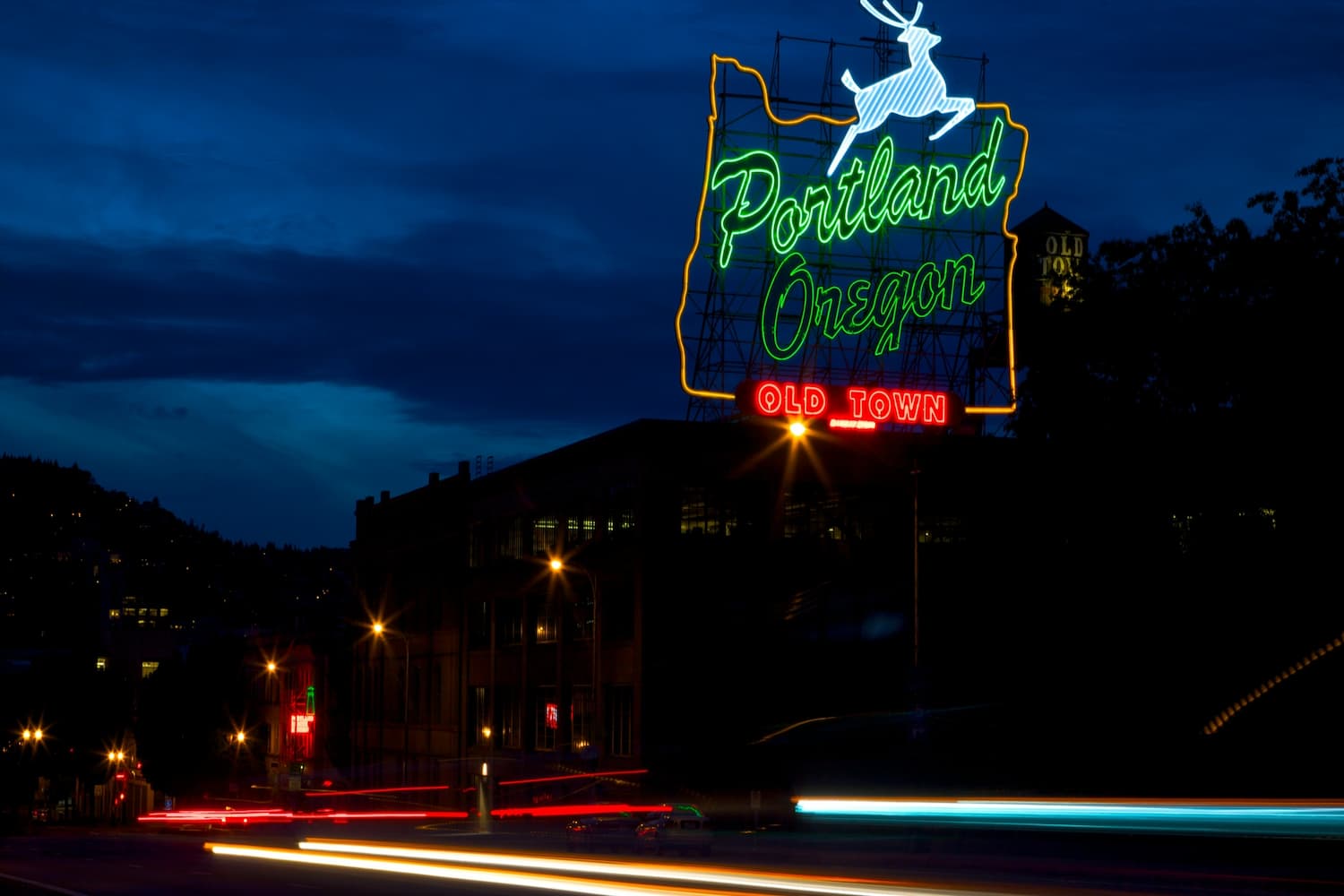
Portland at night. Courtesy of Pexels.
How We Vet Businesses
Each guide in this series offers a curated selection of places to stay, eat, shop, and explore. These are not A-to-Z directories or exhaustive listings. Instead, we spotlight the businesses and institutions that align most strongly with Azure Road’s values. We also strive to show readers that good design, good food, and good values can go hand-in-hand. Eating, shopping, and traveling responsibly aren’t just the domain of hippies or the rich anymore.
The Azure Road Editorial Team has vetted every recommendation to meet at least three of our North Stars inspired by the UN Sustainable Development Goals. These include thoughtful approaches to waste and water management, carbon footprint, heritage preservation, community impact, and more.
To help readers make informed, low-friction decisions, we display icons beneath each business to show which values our recommendations meet. These icons allow you to align your choices with what matters most, whether it’s supporting women-owned shops, minimizing packaging, or finding restaurants that prioritize local sourcing and food equity.
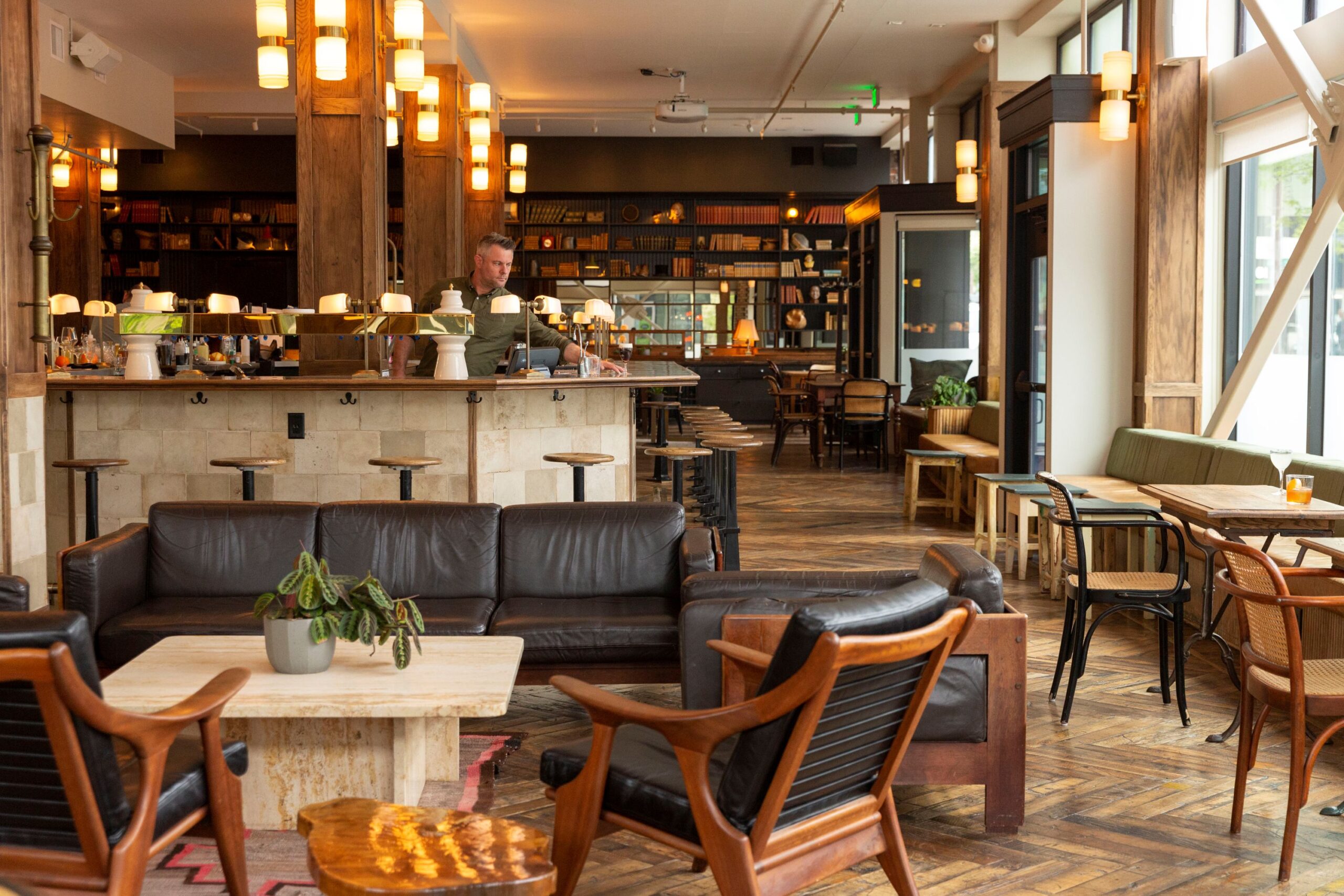
Pacific Standard at Kex Hotel. Coourtesy of Rachelle Hacmac.
Why Portland, Oregon?
We’re starting with Portland, Oregon. A city that, for all its contradictions, has spent decades trying to get the fundamentals right. Portland is a work in progress, but that progress is visible.
It offers a real-time case study of what happens when a city invests in systems that support people, not just profits, and when creative ideas and solutions become actual infrastructure.
What Portland Is Doing Right
Lots of things!
The new terminal at Portland International Airport (PDX) isn’t just lovely to look at (or be delayed in); it was built with regionally sourced timber and designed to maximize natural light and energy efficiency. The revamp also marks a cultural shift. In a bold move, the airport replaced generic corporate concessions with a lineup of local businesses. Now, travelers can experience the city’s food, coffee, and design culture the moment they land. Independent restaurants, small-batch chocolate makers, regional wine producers, and craft retailers now occupy the space that once belonged to national chains. Good riddance, we say.
A few miles away, the Portland Art Museum is completing its most ambitious renovation in decades. The Rothko Pavilion, opening November 20, 2025, will connect the museum’s historic buildings while incorporating high-efficiency systems, sustainable materials, and accessibility upgrades.
In 2026, Portland will debut the James Beard Public Market, the city’s first full-scale public market. Set in a permanent downtown location, the market will offer vendor stalls, a teaching kitchen, and a platform for local farmers, foragers, and food entrepreneurs. It’s designed to support equitable access to fresh food while strengthening Portland’s already influential food culture.
Portland’s bridges are also part of the sustainability story. Tilikum Crossing, named after the Chinook word for “people,” was intentionally built without private vehicle access. It serves only pedestrians, cyclists, and public transit, connecting the city’s Eastside with key destinations like OMSI and the Portland Aerial Tram. Taking a page from Europe, it’s a piece of infrastructure that sends a message: people matter as much (if not more) than cars.
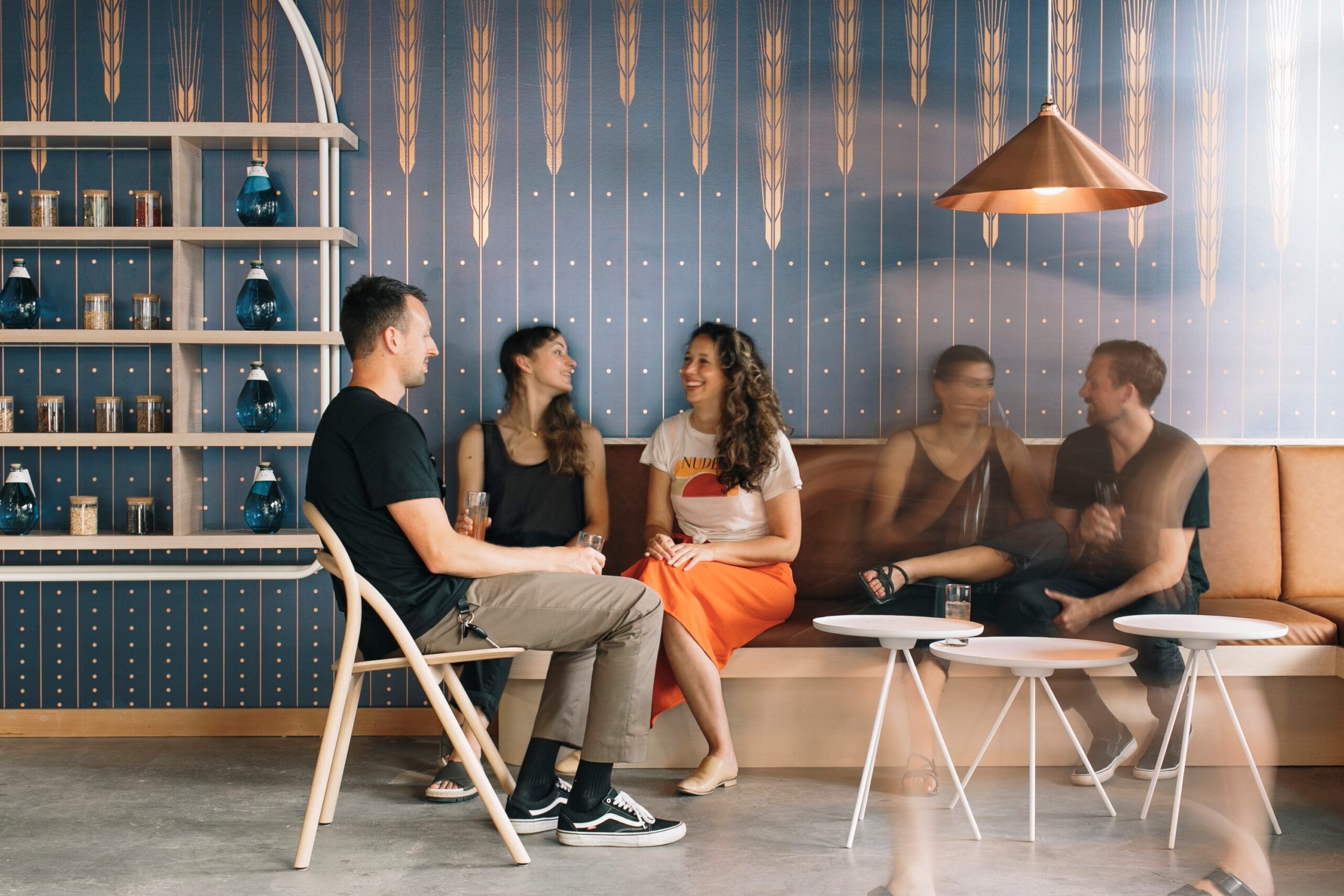
Tasting Room of Freeland Spirits. Courtesy of Freeland Spirits.
For visitors, it’s easy to experience the city and its denizens’ commitment to responsible living. Biketown, Portland’s bike share program, offers short- and long-term rentals that make car-free travel practical. The city’s neighborhood greenways are low-traffic, slow-speed streets that prioritize walking, biking instead of rush hour.
And if you prefer public transit, Portland delivers. With a combination of buses, streetcars, and the MAX light rail system, you can get almost anywhere affordably and efficiently. The system is wheelchair accessible and designed to be intuitive for newcomers.
Art is also deeply embedded in Portland’s POV. Under a longstanding city code, up to two percent of qualifying public infrastructure project budgets must be allocated to public art. That funding has produced an impressive network of murals, sculptures, and installations that turn the city into an open-air gallery.
At Azure Road, we’re not looking for perfect cities — that doesn’t exist. We’re looking for places where people are making an effort and where their efforts make life measurably better, both for locals and for those passing through.
Portland, Oregon is our starting point. More cities to come.
And if that isn’t enough, look for Sustainable Wine Regions next….
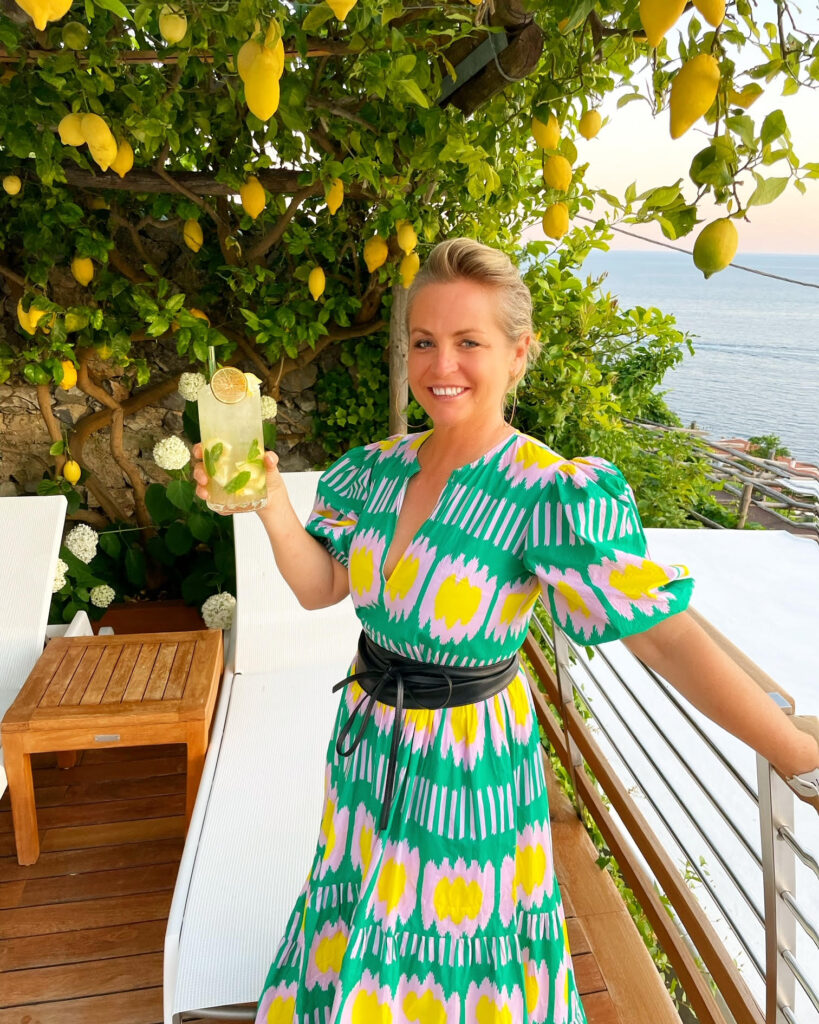
Founder and CEO of Azure Road, Lauren Mowery is a longtime wine, food, and travel writer. Mowery continues to serve on Decanter Magazine’s 12-strong US editorial team. Prior to joining Decanter, she spent five years as the travel editor at Wine Enthusiast. Mowery has earned accolades for her writing and photography, having contributed travel, drinks, food, and sustainability content to publications like Food & Wine, Forbes, Afar, The Independent, Saveur, Hemispheres, U.S. News & World Report, SCUBA Diving, Plate, Chef & Restaurant, Hotels Above Par, AAA, Fodors.com, Lonely Planet, USA Today, Men’s Journal, and Time Out, among others.
Pursuing her Master of Wine certification, she has also been a regular wine and spirits writer for Tasting Panel, Somm Journal, VinePair, Punch, and SevenFifty Daily. Mowery is a graduate of the University of Virginia and Fordham Law School, and she completed two wine harvests in South Africa.
Follow her on Instagram @AzureRoad and TikTok @AzureRoad
North Stars: Heritage Value, Production & Consumption, Wildlife Ecosystems


